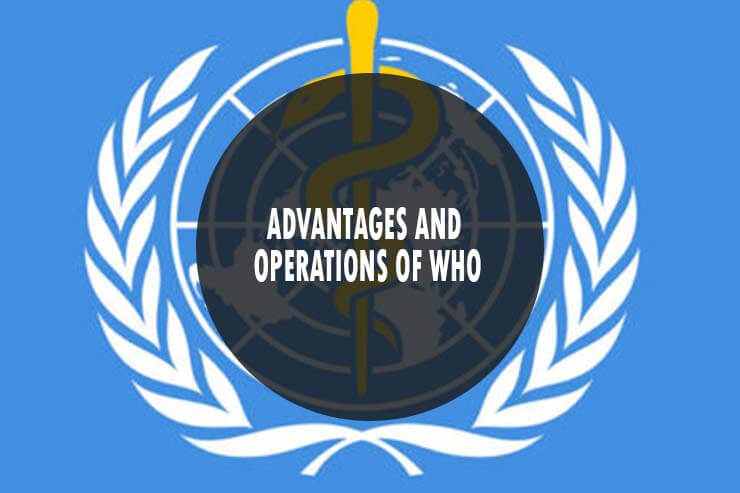Pros and Cons of Abortion
Abortion is a divisive issue, and it has been a controversial topic for many years. It is a medical procedure that ends a pregnancy by removing the fetus from the uterus of the pregnant person. There are many views on abortion, ranging from legal and moral to medical and religious. Let’s discuss the pros and cons of abortion, and examine the various perspectives that inform the debate.
What is Abortion?
Abortion is a procedure that terminates a pregnancy. It can involve taking medication or undergoing a surgical procedure to remove the fetus from the uterus. It is one of the most common medical procedures in the United States, with an estimated 1.2 million abortions taking place each year. Abortion is legal in the United States, though some states have restrictions on when and how it can be performed.
The decision to have an abortion is a personal one and can be a difficult one to make. It is important to consider all of the potential risks and benefits of the procedure before making a decision. It is also important to talk to a healthcare provider to ensure that the procedure is performed safely and in accordance with the laws of the state.
The Legal Status of Abortion
In 1973, the Supreme Court ruling on Roe v. Wade established abortion as a legal right for pregnant people in the United States. Since then, many states have imposed restrictions on the procedure, including parental consent laws, waiting periods, and restrictions on late-term abortions. Some states have also passed laws that make it more difficult for people to access abortion services. The legal status of abortion is often debated in courts and legislatures.
In recent years, the debate over abortion has become increasingly polarized. Proponents of abortion rights argue that the procedure should remain legal and accessible, while opponents of abortion rights argue that it should be outlawed or heavily restricted. The Supreme Court has repeatedly upheld the legality of abortion, but the issue remains a contentious one in many parts of the country.
Medical and Religious Perspectives on Abortion
The medical community generally views abortion as an acceptable form of birth control and considers it to be a safe and effective procedure when performed by a qualified health care provider. The religious perspective on abortion varies widely, with some faiths proscribing it entirely while others are more tolerant. Ultimately, individuals must make their own decisions based on their own religious beliefs.
When considering the moral implications of abortion, it is important to remember that the decision is a personal one. Each individual must weigh the medical and religious perspectives on abortion and decide what is best for them. You should remember that the decision should be made with compassion and understanding, regardless of the outcome.
Mental Health Effects of Abortion
Abortion can have both positive and negative effects on a person’s mental health. Studies have found that abortion does not generally increase the risk of mental health problems. However, it can be emotionally difficult for some people to come to terms with their decision to have an abortion. It is important for people to have access to support services during and after their abortion experience in order to help them cope with the emotional effects.
It is important to remember that everyone’s experience with abortion is different. Some people may feel relief after their abortion, while others may feel sadness or guilt. It is important to be aware of the potential emotional effects of abortion and to seek help if needed. Professional counseling can be a great resource for those who are struggling with the emotional aftermath of an abortion.
Financial Implications of Abortion
The cost of an abortion varies depending on factors such as the stage of pregnancy and the type of procedure used. In some cases, insurance may cover the cost of an abortion. In other cases, people may need to pay out of pocket for the procedure. It is important for people to be aware of the potential financial implications of abortion before making a decision.
In addition to the cost of the procedure itself, there may be other costs associated with an abortion. These can include costs for transportation, lodging, and childcare. It is important to consider all of these costs when making a decision about abortion.
Emotional Impact on Women Who Have Had an Abortion
Many women who have had an abortion experience a range of emotions afterwards. Some may feel guilt or regret, while others may feel relieved or even empowered by their decision. It is important for people who have had an abortion to have access to counseling and support services in order to work through their feelings.
It is important to remember that everyone’s experience is unique and that there is no right or wrong way to feel after an abortion. It is recognize that the emotional impact of an abortion can be long-lasting and may require ongoing support. It is important to seek out resources and support from friends, family, and professionals to help process and cope with the emotions that may arise.
Health Risks Associated with Abortion
Abortion is generally considered to be a safe procedure when performed by a qualified health care provider. However, as with any medical procedure, there are risks involved. These risks include infection, bleeding, and damage to the uterus or cervix. It is important for people to discuss all potential risks with their health care provider before undergoing an abortion.
In rare cases, abortion can also lead to complications such as blood clots, damage to other organs, and even death. It is important to note that the risk of these complications is very low, and that the majority of abortions are performed without any major issues. However, it is important to be aware of the potential risks and to discuss them with your health care provider.
Alternatives to Abortion
For some people, the decision to have an abortion can be a difficult one. There are alternatives available to those who do not wish to have an abortion but are not ready to become parents. These alternatives include adoption and foster care, which can provide safe and loving homes for children who may otherwise not have access to them.
In addition to adoption and foster care, there are other options available to those considering alternatives to abortion. These include parenting classes, support groups, and counseling services that can help individuals and couples make informed decisions about their reproductive health. These services can provide guidance and resources to those who are considering their options and can help them make the best decision for their situation.
Resources for People Considering an Abortion
Deciding whether or not to have an abortion can be an incredibly difficult decision. It is important for people considering an abortion to have access to accurate information about their options and potential risks. There are many resources available for people considering an abortion, including online support groups and pregnancy counseling centers.
Online support groups provide a safe and anonymous space for people to discuss their feelings and experiences with abortion. These groups can be a great source of comfort and support for those who are struggling with their decision. Pregnancy counseling centers provide free and confidential services to help people make informed decisions about their reproductive health. These centers can provide information about abortion procedures, risks, and alternatives, as well as emotional support and referrals to other resources.




